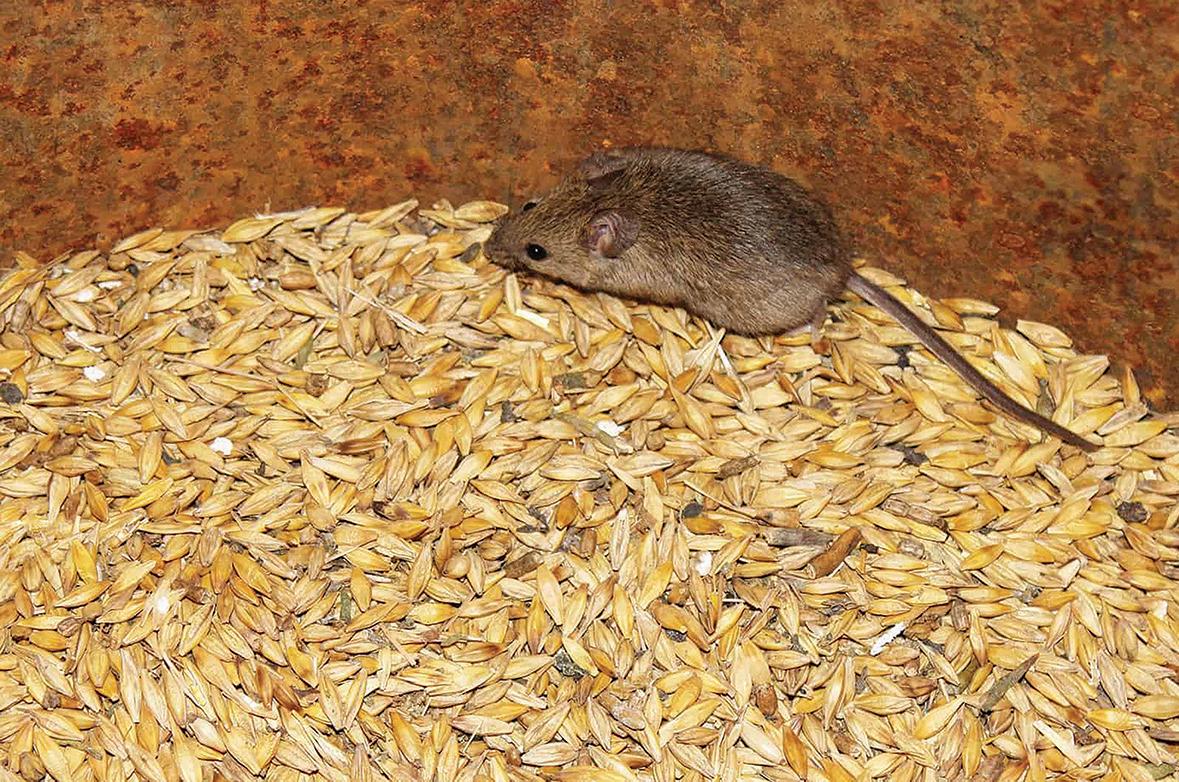
2 minute read
Veterinary View
Vitamin E deficiency in horses
Dietary deficiency of vitamin E can lead to three specific neurologic and muscular diseases.
Advertisement
Vitamin E is an essential nutrient for horses. This antioxidant helps maintain normal neurological function by limiting the damage caused by oxidative stress and free radicals. The best source of vitamin E is fresh green grass. Horses that graze on lush green pastures often have adequate access to vitamin E. However, many stabled horses are not maintained on pasture. Vitamin E levels decrease and eventually are lost as soon as grass is harvested, so even the highest-quality hay will not meet vitamin E requirements. Some horses maintained on diets deficient in vitamin E can experience significant health consequences. Vitamin E helps a horse’s muscles and nerves function properly. A dietary deficiency can lead to three specific diseases:(1) equine neuroaxonal dystrophy/equine degenerative myeloencephalopathy (eNAD/EDM), (2) equine motor neuron disease (EMND) and (3) vitamin E deficient myopathy (VEM) These diseases are typically diagnosed based on clinical signs, exclusion of other disorders, and low concentrations of vitamin E in the blood.
Equine neuroaxonal dystrophy/equine degenerative myeloencephalopathy occurs in young animals and has a genetic predisposition. Affected horses may stand with forelimbs too far apart (or too close together), have difficulty navigating curbs or hills, or lack coordination while walking and making tight turns. Signs of the disease can vary: some horses show mild performance issues, while others are severely debilitated. Although the exact cause of the degeneration is unknown, a specific interaction between genetics and nutrition during the first few years of life is required for this disease to manifest. These diseases are the only conditions definitively associated with vitamin E deficiency. Nothing is known about vitamin E metabolism in horses, the appropriate dosage, or its actual efficacy in preventing or treating other neurological conditions.

In humans, the same enzymes that metabolise vitamin E also metabolise approximately 50 per cent of therapeutic drugs, so supplementation with vitamin E could potentially alter the effects of other drugs if a horse is on multiple therapies. Therefore, while vitamin E supplementation may not necessarily be harmful with respect to other neurologic diseases, it is unlikely to be beneficial.
Since there are no effective treatments for most diseases caused by vitamin E deficiency, prevention is key. If horses are not able to access fresh pastures to graze, vitamin E must be supplemented in their diets. However, not all vitamin E supplements are created equally. Baseline blood vitamin E concentrations should always be assessed before initiating any vitamin E supplementation. Owners should consult with their veterinarians to determine if vitamin E supplementation is required and identify the best supplementation regimen for their particular horse.










